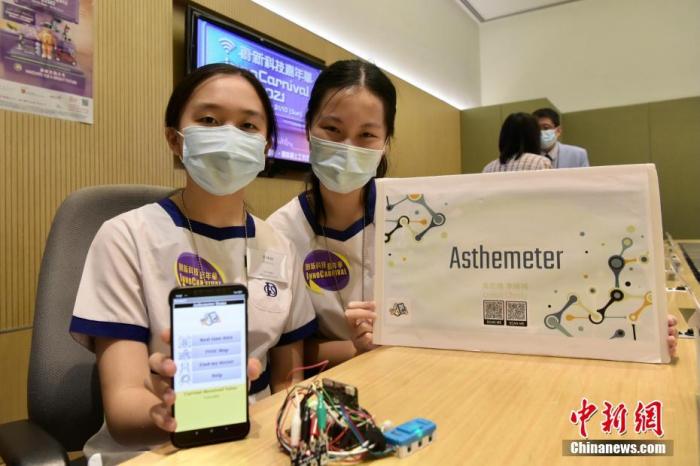China News Service, Hong Kong, September 25 (Reporter Han Xingtong) The Hong Kong science and technology community celebrated the 72nd anniversary of the founding of the People's Republic of China in Hong Kong on the 25th.
Many SAR government officials and academic representatives delivered speeches and keynote speeches, analyzing the current development of Hong Kong's innovation and technology, and making suggestions for future development.
Huang Yushan, chairman of the Presidium of the Preparatory Committee for the National Day Celebration in Hong Kong, said in his speech that Hong Kong is in a golden period of development and must seek truth from facts and strive hard.
On the one hand, universities must continue to do a good job in basic research and maintain their advantages; on the other hand, the SAR government and the innovation and technology industry must strengthen cooperation and exchanges with other places. In particular, mainland scientific research companies should be welcome to come to Hong Kong to establish R&D centers and make full use of the scientific research of Hong Kong universities. Strength and talents, scientific and technological talents can also be imported to the mainland.
Through this two-way intercommunication, Hong Kong's innovation and technology industry will surely develop rapidly.
On the morning of September 23, the Innovation and Technology Agency of the Hong Kong Special Administrative Region Government held a press preview of the "Innovation and Technology Carnival 2021" to showcase innovative inventions and scientific research results.
The picture shows the asthma detector displayed by the participating team.
Photo by China News Agency reporter Li Zhihua
The Financial Secretary of the Hong Kong Special Administrative Region Government, Chen Maobo, said that in the past four years, the Special Administrative Region Government has invested heavily in promoting innovation and technology development from eight major policy directions, including increasing R&D resources, gathering scientific and technological talents, providing venture capital, providing scientific research infrastructure, and opening up government data. , Change government procurement methods, strengthen science education and review current laws and regulations, etc.
So far, the SAR government has invested more than 110 billion Hong Kong dollars to implement a number of projects, and these investments have made progress. The 27 selected R&D centers for intelligence and medical technology have been launched one after another.
Chen Maobo pointed out that Hong Kong should give full play to its own advantages and strengths, actively participate in and promote the development of innovation and technology, and better respond to the country's needs in the new era and new stage, while also enabling Hong Kong to have better development.
Wei Bingjiang, President of Hong Kong Baptist University, delivered a speech on the theme of "Hong Kong Building an International Innovation and Technology Center-The Role Universities Should Play".
He first analyzed the current state of innovation and technology development in Hong Kong: universities dominate research in Hong Kong, with a small number of industries participating; Hong Kong has many world-leading universities.
He asked: Does a high ranking mean being good at innovative technology?
Wei Bingjiang believes that Hong Kong must establish its own industry and drive application and transformational research through industry.
At the same time, Hong Kong also needs to improve the maturity of scientific research and technology, establish a platform to strengthen cooperation among government, industry, academia, and research, and effectively manage intellectual property rights.
He suggested that the SAR government and universities strengthen investment in applied research and translational research, including talent recruitment and training, infrastructure, capital investment, and partnerships.
He also put forward a number of suggestions, including universities should strengthen and encourage innovation culture, promote inter-departmental and inter-academic scientific research cooperation, and add interdisciplinary courses and subjects to undergraduate courses.
(over)

